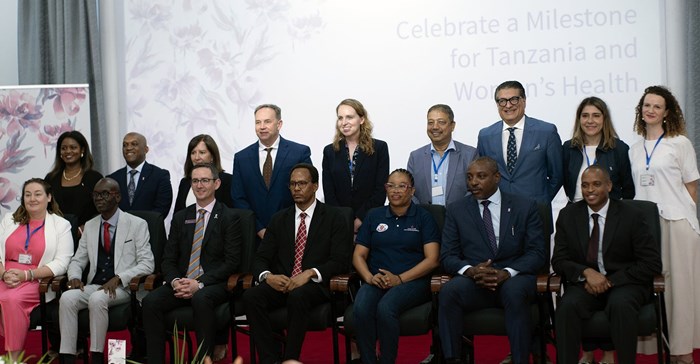Radiologists at Muhimbili National Hospital, part of the Muhimbili University of Health and Sciences and the largest public hospital in Tanzania, are at long last receiving the latest mammography technology and advanced imaging training to help clinicians improve detection, diagnosis and treatment of breast cancer in the country.

Source: Supplied.
The project aims to help lower Tanzania’s 50% breast cancer mortality rate through early detection and efforts to expand clinical education.
Recently, the Radiological Society of North America (RSNA) and GE HealthCare announced their collaboration to provide mammography technology, training and educational tools to radiologists at Muhimbili National Hospital (MNH), part of the Muhimbili University of Health and Sciences (Muhas), in Tanzania to improve access to screening and help clinicians lower the country’s breast-cancer mortality rate.
MNH at Muhas is a public hospital serving Dar es Salaam, the largest city in Tanzania, and formerly did not have a working mammography machine.
For women in Tanzania, breast cancer is the second leading cause of cancer mortality, with more than 80% of diagnoses happening at stage III or IV when the odds of long-term survivability are much lower.
Additionally, the lifetime risk for developing breast cancer is approximately one in 20, and approximately half of all women diagnosed with breast cancer in the country die of the disease.
Breast cancer is the most common cancer among women worldwide, affecting both developed and developing countries. Its impact transcends borders, cultures, and socioeconomic backgrounds.
Transforming radiology education
To help improve radiology education and patient care around the world, RSNA developed the Global Learning Center (GLC) programme that works to create learning centres with established radiology departments based in low- or middle-resourced countries, like Tanzania.
Through this programme, a team of RSNA members works with the institution over three years to develop a customised curriculum with in-person, hands-on training, didactic lectures, conferences, online courses and other education offerings. Muhas is part of the RSNA GLC programme and is funded by a grant from the US Department of Energy’s National Nuclear Security Administration (NNSA).
As part of the new agreement, GE HealthCare will install the Pristina Mammography Suite, which includes 2D and 3D digital breast tomosynthesis, Contrast Enhanced Mammography (CEM), CEM biopsy capabilities and a Seno Iris workstation at Muhas, as well as provide maintenance of the system at no charge to the university.
Approximately 20 nurses, radiologists and techs will be involved with the mammography suite. Live training under the grant will cover operation of the system, image interpretation, patient care, video tutorials, case-study learning, engagement of physicians in a peer-learning network and, upon course completion, a GE HealthCare-issued certification.
Global efforts against breast cancer
In addition to improving the level of radiologic practice and breast care throughout the region, the collaboration between GE HealthCare, Muhas and RSNA will also work to raise awareness about the importance of breast-cancer screening and early detection among Tanzanians.
“GE HealthCare is committed to helping reduce disparities in care and improving access to medical imaging worldwide. One of the ways we honour this commitment is through our continued pursuit of innovative imaging technology.
"Another way we honour this commitment is by working with organisations, like RSNA, to leverage our different strengths and engage the global community to help break down barriers to care,” said Jan Makela, president and chief executive officer of imaging at GE HealthCare.
“With breast-cancer mortality rates in Tanzania among the highest globally, our work with RSNA will help bring much-needed mammography technology to Muhas. Early detection can save lives, and we believe this combination of technology, training and educational tools has the potential to help thousands of women across Tanzania.”
Expanding RSNA's global reach
Since the RSNA GLC programme’s introduction in 2020, RSNA has established sites in South Africa, Tanzania, Ecuador, Indonesia and Armenia.
“RSNA’s Global Learning Centre programme was designed to expand radiology education across the world and foster international collaborations.
"Through this collaboration with GE HealthCare, we are able to work with local stakeholders at Muhimbili National Hospital to advance a breast imaging curriculum, provide in-person hands-on training in mammography, and offer online courses, technical assistance and virtual support,” said Umar Mahmood, chair of the RSNA board of directors.
“Bringing this critical training and technology to Muhas will improve access to quality patient care throughout the region and save lives.”






































